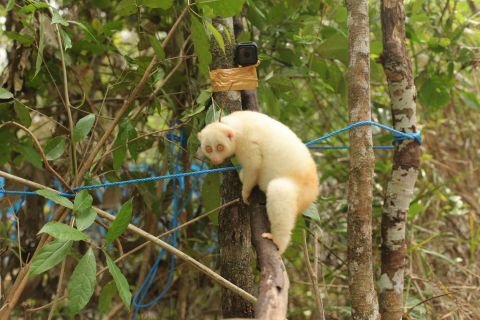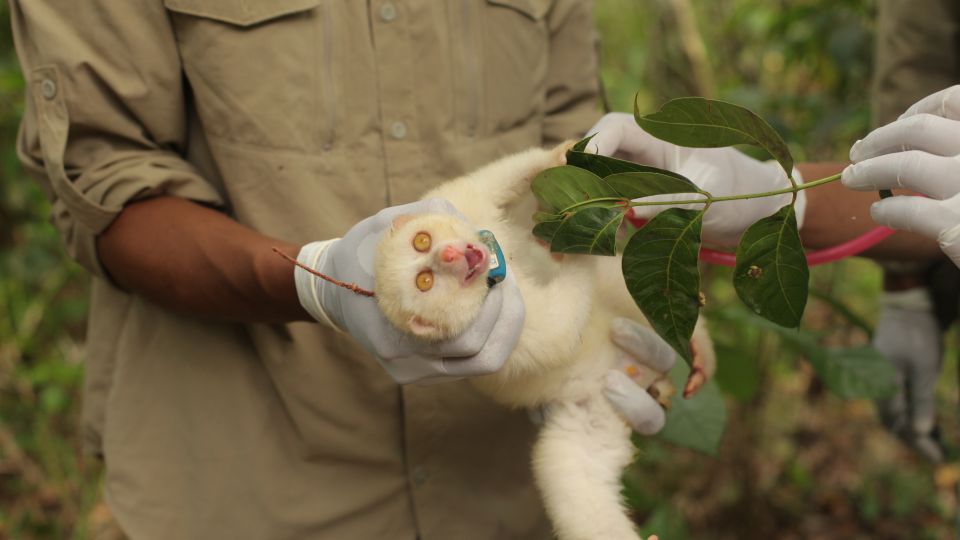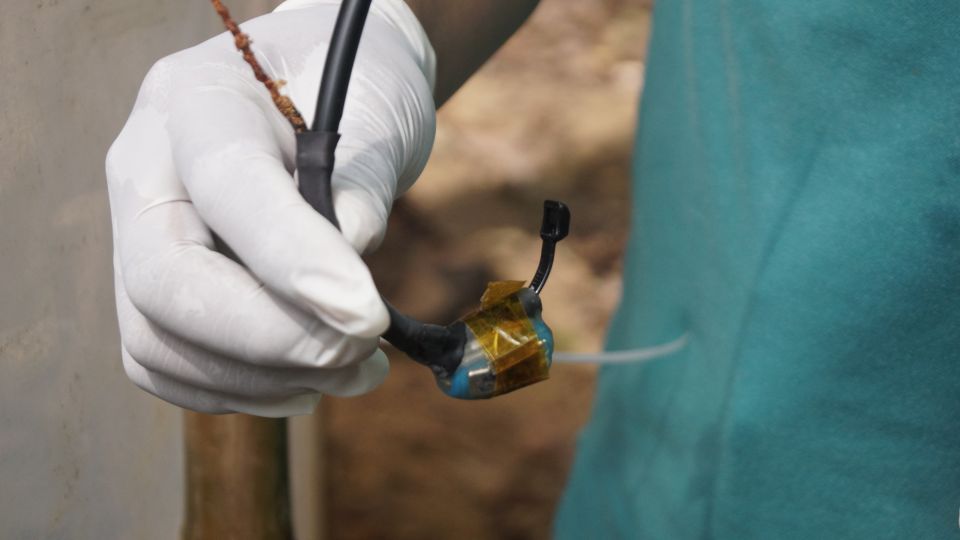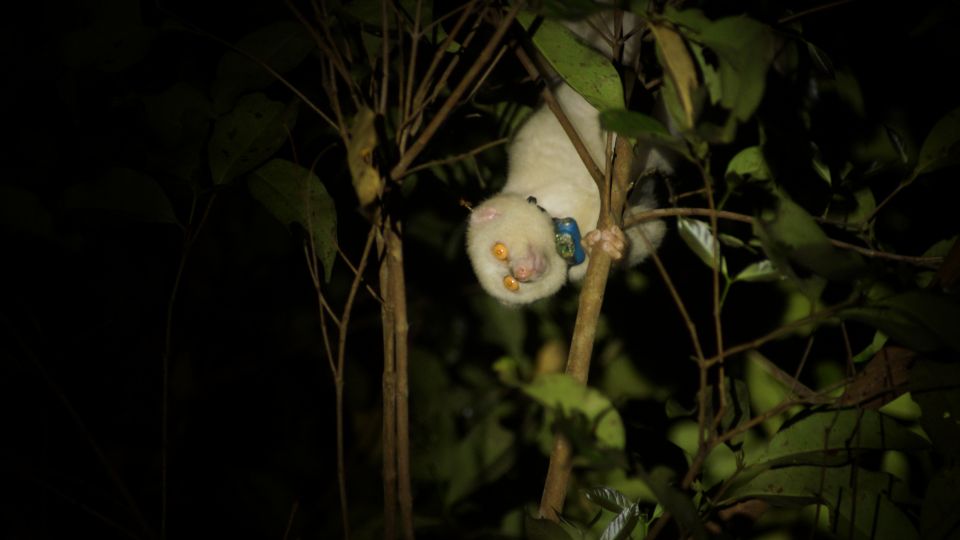
An extremely rare albino Sumatran slow loris which had been caught from the wild and kept as a pet in Lampung, Sumatra was finally released back into its natural habitat in the Bukit Barisan Selatan National Park Area (TNBBS), Lampung Province last week (Monday 08/10/2018.) Previously, the slow loris had undergone treatment and rehabilitation at the Natural Resources Conservation Centre (PPS) for Natural Resources Conservation (BKSDA) in Bandar Lampung.
Teguh Ismail, Head of Lampung Region III Conservation Section BKSDA Bengkulu, said that, since being rescued on 31 August, the slow loris had been given expert treatment to restore it to full health. In addition, its activities, behaviour and feeding had been observed to ensure it was now in good condition and ready to live freely in its natural habitat.
“Based on the medical team’s final examination, the slow loris is in good condition and ready to be translocated to undergo habituation in the TNBBS area. During the habituation period, the slow loris will be monitored periodically to check on its progress,” Teguh said.

Teguh explained that the slow loris would not immediately be released directly into the wild. He will undergo habituation for two to four weeks to allow him to adapt to his new environment and adjust to his natural food.
The loris will also be monitored post-release to ensure he is fully equipped to survive in the wild. To facilitate monitoring, the slow loris was fitted with a radio collar around his neck. The radio collar emits a signal which is captured by the antenna and causes a sound in the receiver.
The sound from the receiver helps the team in the field locate released lorises. The release of the albino slow loris was carried out by SKW III Bengkulu BKSDA together with the Bukit Besar Barisan Selatan National Park Office, with guidance from the Directorate of Biodiversity Conservation KSDAE for the sustainability of slow lorises in nature.

This effort is carried out to enable victims of wildlife trade to return to their natural habitat in accordance with the principles of animal welfare. A team from IAR Indonesia also took part in this special release operation. “Although this albino slow loris is extremely rare, it is still entitled to live freely in its natural habitat like other wildlife.
The reintroduction of slow lorises into the wild can also provide benefits and carry out ecological functions in their natural habitat by controlling insects and pollinating plants, “Teguh added.
Agus Wahyudiono, Head of the Bukit Barisan Selatan National Park (TNBBS), said that the TNBBS area was used as an offshore location because of its status as a conservation area so as to ensure the safety of slow lorises from human activities.

In addition, the results of the IAR Indonesia team survey also showed the diversity and availability of slow loris food in the TNBBS area.
Agus continued, the national park, which has an area of more than 320,000 hectares is a natural conservation area and the last stronghold of tropical rain forests in Lampung Province. In addition, TNBBS has an abundance of natural and non-biological natural resources, as well as a complete ecosystem ranging from coastal ecosystems, lowland rainforests to mountain rainforests.
The potential of the TNBBS area is expected to be able to function as a habitat for protection of various species of Indonesian wildlife and become a buffer system for life for the surrounding communities,” Agus concluded. Karmele Llano Sanchez, Programme Director of IAR Indonesia, commented: “This is the first known albino loris in the world and therefore extremely rare.
If it wasn’t for the incredible work of the authorities to combat illegal wildlife trade, this loris could have died in the hands of wildlife traffickers. Thankfully, we are able to give this animal another chance to survive in the wild where it belongs.”

